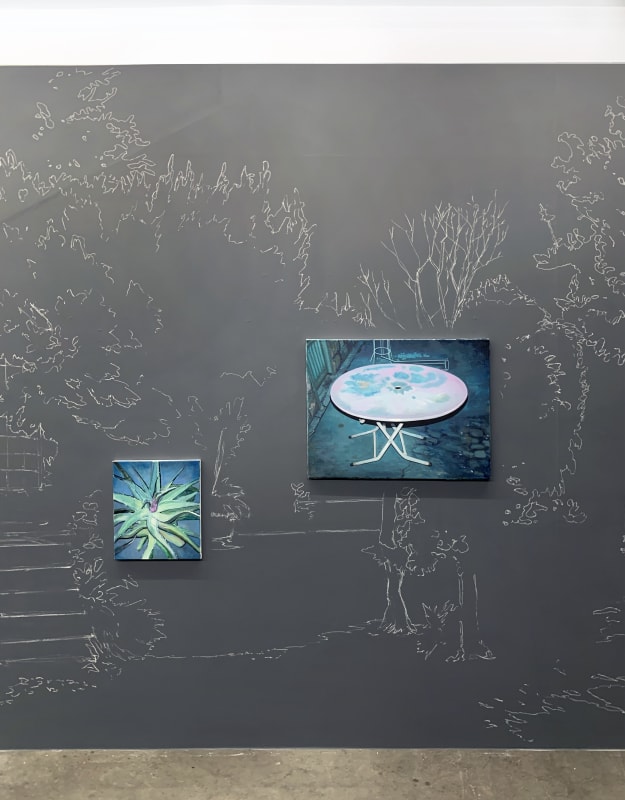Albada Jelgersma Gallery is pleased to announce Fragments of Garden, the first solo exhibition of Arjan van Helmond in the gallery. The exhibition opens on Saturday, October 26 from 5-7 pm and runs through December 14.
Arjan Van Helmond (1971, Deurne, NL) has transformed the gallery into a totalizing and absorbing panorama with white chalk on a gray background. On this panorama, his paintings appear as memory capsules, executed in thin layers of gouache and acrylic. The paintings of plants and objects appeal to our own memory. They depict everyday subjects with tension and suspense. The viewer feels himself immersed in a Mediterranean garden. It is a garden in late winter, which is about to awaken. The paintings show exotic plants, empty garden chairs, a swimming pool; each work is carefully built up in transparent layers, always departing from one dominant color. Sometimes these layers are painted in an extremely precise manner, then again painted loosely, searching for new possibilities. The light and colour directs our gaze, evoking the intimacy of different places in the garden. The paintings together are the sum of the gazes and perspectives that not only says something about the way memory works, but that also brings the depicted objects and plants to life and gives each its own role.
What are the motives behind these paintings? And can this representational form of painting reveal these intentions? What is the conflict or the gap between what you see and what the painted image evokes? And how does our own past nurture the interpretation of these works? Is it even important to know that the paintings are based on the garden of Van Helmond’s family in Lebanon?
Van Helmond paints explicitly from photographs, which he appropriates with concentrated attention. He invites the viewer to step into the intimacy of this enclosed space and do the same. Behind the plant or garden chair, under the paint, their archetypes vibrate but also remind us of specific plants and garden furniture of our past. However, in the appropriation also lies the threat of loss.

